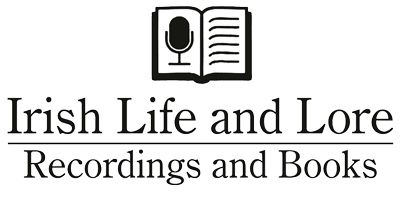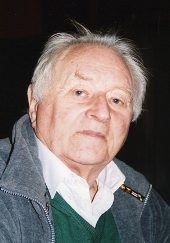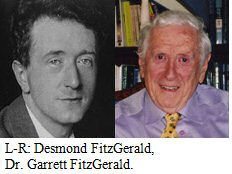The O’Mara family lived in John Dillon Street in Dublin city centre and the O’Grady family lived nearby in Nicholas Place. Peadar O’Mara joined 3rd Battalion Irish Volunteers in 1913 and served at Boland’s Mills under Éamon de Valera during the Rising. He remained a member of the Volunteers until the War of Independence. He later joined the Free State Army. He married Ellen O’Grady in 1922 on the day of the burning of the Four Courts, and their son, Charles O’Mara, was born at the Commandant’s house at Arbour Hill in 1924. Charles’ maternal uncle, John James O’Grady, was stationed at Jacob’s Factory during Easter Week 1916. Charles explains that from his own research and from what is known in the family, he is aware that John James and others tried to get to Boland’s Mills from Jacobs on bicycles, but were prevented from doing so due to the fighting at Mount Street Bridge. On the return journey John James was shot twice, but with the help of his friends he made it back to Jacobs, where he collapsed. He was brought to the Adelaide Hospital where he died four hours later. Charles thinks that his uncle was one of the last casualties of the week. His O’Grady grandmother would speak about her son’s death in the Rising but in those times Charles and his siblings did not ask questions. Through his recent research he has discovered more about John James O’Grady and his brother Charlie. Peadar O’Mara was arrested following the surrender in 1916 and was interned at Frongoch. At one time he was employed in Switzers, and later with Dublin Corporation. His father was overseer in the cleansing department of the Corporation. Following his release in December 1916 Peadar and his comrades regrouped into their battalions. Charles discusses the burning of the RIC barracks at Baker’s Corner in which his father was involved, and he feels that he was very active with the Brunswick Street group. As far as he is aware, his father took part in the War of Independence. At that time, the O’Grady’s lived at Ormond Square and he has heard that some of the houses there were raided by the Black and Tans. Frank O’Grady married Josephine Hampton, whose brother Dermot was the armourer for the battalion in 1916. Charles explains that their house in Ormond Square was an arsenal and was often raided, though no weapons were ever found on the premises. Apparently Mrs Hampton would claim to have a fainting fit whenever the house was raided! Charles O’Grady was an anti-Treaty supporter and his brother Frank was pro-Treaty, though Charles never witnessed any friction between them. He recalls his uncle, Paddy O’Mara, who supported the anti-Treaty side, though he maintained a good friendship with his brother Peadar. Paddy O’Mara later joined the Garda Siochána and was attached to the Special Branch. He became the driver for Éamon de Valera when he was elected Taoiseach. Charles recalls being collected by his uncle in a big American Chevy on a few occasions. Until his retirement, Paddy worked as chauffeur for Taoiseach de Valera. Peadar O’Mara was on active duty at the Curragh during the Civil War. He was later Governor of Mountjoy Prison before he was appointed to Arbour Hill Detention Prison. Charles recounts an anecdote told him by his uncle, Paddy O’Mara, who was a supporter of de Valera. Paddy was in Mountjoy Prison when his brother Peadar was governor there, and the anecdote relates to this time. A prisoner during his father’s tenure at Arbour Hill prison was Éamon de Valera, and Charles explains that, like most veterans, his father was invited to Áras an Úachtaráin during de Valera’s presidency. When Peadar O’Mara died in 1965, his brother Paddy received a message asking him to be prepared for de Valera’s attendance at the removal, because of the connection with Boland’s Mills in 1916. Charles feels that the veterans were attempting to put past events behind them. Charles was very close to his grandmother, Ellen O’Grady, who was born in 1864 in Dublin. He says that she was not political though she had lived through the Fenian period. Her family, the Murrays, were from Arklow, and Charles is currently researching the Murray family history. He has traced the family back to 1820, using the transcriptions carried out by Wicklow County Council. He explains that his grand-daughter’s interest in her family history has spurred him on. He recalls the severity of the economic depression of the 1930s, and the family’s good fortune to have his father’s military service pension. His maternal grandfather had a bookbinding premises in Drury Street, and his uncle Charlie was a foreman bookbinder. This business is now gone. Charles’s mother, Katherine O’Grady, and his uncle Charlie’s future wife, Rosanna Grahan, had been involved in Cumann na mBan, and he knows that the women practised first aid, carried messages and transported weapons. Charles was the firstborn in his family, and a sister and brother both died young, which he sensed had a great effect on his mother who died as the result of a brain haemorrhage in 1945. She did not make a witness statement and he has not been able to discover much about her activities in earlier days. Charles discusses his father’s position as Provo-Marshal at Curragh Camp. He was commanding officer of the military police with responsibility for the security of the camp. His various roles over time, and his recall to the Army from the reserve during the Emergency, are discussed. Charles’s maternal uncle, Frank O’Grady, was a Staff Captain in the Free State Army and Peadar O’Mara encouraged him to join up again in 1939, though he instead got employment in the post office. Peadar O’Mara was awarded military medals and a military service pension. Charles remembers him as a strict man, though very fair and generous. He was pleased to have been appointed commandant at Arbour Hill as it offered a more pleasant environment than had Mountjoy Prison. Charles describes his research into John James O’Grady and his death in 1916. His death certificate gives the cause of death as a gunshot wound. At the time of his death he had been married to Josephine Grey for just eight months. He was buried in the Church of Ireland graveyard on James Street and Charles explains the reason for this. He has a photograph of his grandmother and John’s young widow at the grave. The change of use of the church is discussed. A headstone was erected on John James O’Grady’s grave by the family. At the O’Mara family plot in Mount Jerome Cemetery there is no reference to Katherine O’Mara’s membership of Cumann na mBan on her gravestone, and Charles discusses the possible reasons for this.

Charles O’Mara (b. 1924)
Charles O’Mara (b. 1924)
€10.00 – €20.00
Additional information
| Type: | MP3 |
|---|---|
| Audio series: | The 1916 Rising Oral History Collections |
| Bitrate: | 128 kbps |
| Download time limit: | 48 hours |
| File size(s): | 52.74 MB |
| Number of files: | 6 |
| Product ID: | CD191602-032 |
| Subject: | Peadar O’Mara (Interviewee’s father), John James O’Grady (Interviewee’s uncle) |
| Recorded by: | Student |








